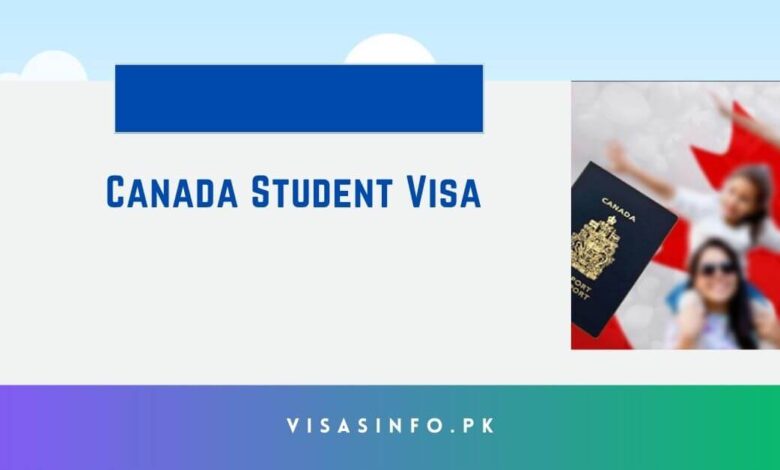Canada Student Visa 2024 – Latest Update

The implementation of a 30-hour workweek for foreign pupils is currently under consideration in Canada. Several initiatives to improve the program for international students have been unveiled and proclaimed by the Canadian Minister of Immigration, with the first of these beginning in 2024.
Future cohorts of international students will reap the rewards of the reforms, which include the imposition of a Provincial Attestation Letter (PAL) from a province or territory and an increase in the cost of living effective January 1, 2024. Nevertheless, a few individuals who intend to pursue education abroad in Canada have expressed their dissatisfaction with the most recent revisions to the spouse’s open work visa and post-graduation work permit (PGWP).
The following modifications are contentious, and we appreciate the perspectives of all parties. Another significant message was conveyed during this announcement: there is hope for international students who are studying in Canada. Furthermore, Mark Miller, the minister of immigration, announced that the full-time employment program for qualified students would be extended until the end of April (2024).
Students who are currently eligible for full-time employment are required to work more than 20 hours per week to cover their expenses. This is the primary reason for this. In addition, the IRCC is investigating potential alternatives and may increase the weekly working hours of international students by up to 30 hours, as indicated in the press release.
Who can work full-time until April 2024?
Sean Frasier, the former minister of immigration, implemented a provisional regulation that permitted international students to study during class as long as they conformed to the requirement to work more than 20 hours per week. He did not establish a maximum number of hours. In other words, foreign students were permitted to labor an unlimited number of hours, provided that they fulfilled the prerequisites of their academic programs. Nevertheless, he implemented a limit, which prevented all foreign students from working full-time.
The IRCC has accepted the sole candidates for study permits who meet the criteria outlined below. They will remain in this status until April 30, 2024, provided that the IRCC receives their study permit application or extension by October 7, 2022. If any of the following apply to you, you are permitted to work off-campus for a minimum of 20 hours per week from November 15, 2022, to April 30, 2024:
- If this is your final semester of study, you are enrolled part-time under study permission, or full-time with study permission in a DLS.
- If this is your final semester, you have maintained your status and are currently enrolled in classes at a DLS, either full-time or part-time, even though your study permit has expired.
In addition, if the IRCC received your study permit application or extension between October 8, 2022, and December 7, 2023, you must also satisfy all of the following criteria. If any of the following pertain to you, you are permitted to labor off-campus for a minimum of 20 hours per week from January 1, 2024, to April 30, 2024.
If this is your final semester of study, you are enrolled part-time under study permission, or full-time with study permission in a DLS.
- If this is your final semester, you have maintained your status and are currently enrolled in classes at a DLS, either full-time or part-time, although your study permit has expired.
- You have been granted permission to pursue your education in Canada; however, you have not yet arrived.
Individuals who submitted applications for a study visa or an extension with the IRCC after December 7, 2023, are prohibited from working more than 20 hours.
Will Canada increase the weekly working hours for international students to 30 hours?
Minister of Immigration Mark Miller’s most recent immigration regulations are somewhat acerbic; however, they will be advantageous to all, particularly international students. The annual quota on the number of international students in Canada has also been implemented, which restricts the number of transient residents who are eligible for spousal open work permits (SOWPs) and post-graduation work permits (PGWPs).
It seems that the expansion of the working hours for international students from 20 to 30 hours will be generally advantageous and will partially mitigate the decrease in SOWP and PGWP numbers. Furthermore, as the Minister of Immigration stated, the decrease in foreign enrollment will facilitate the success of international students.
The impact of new changes on the number of international students entering Canada will be somewhat mitigated by the increase in work hours from 20 to 30 hours and the PGWP and SOWP holders.
Check Also: Canada To Approve Only 292,000 Study Permits
Benefits of a Canada Student Visa
- High-Quality Education: Canada’s education system is internationally recognized for its exceptional quality, with numerous universities and colleges being ranked among the finest in the world. A Canadian diploma, certificate, or degree is internationally acknowledged and esteemed.
- Studying While Working: International students in Canada are permitted to work part-time (up to 20 hours per week) during academic sessions and full-time during scheduled breaks without the necessity of a distinct work permit. This assists students in acquiring vital work experience and managing their living expenses.
- Postgraduate Work Permit (PGWP): International students are eligible for a Postgraduate Work Permit upon completion of their studies. This permit enables them to work in Canada for a period of up to three years. Individuals who are pursuing permanent residency in Canada may find this work experience to be indispensable.
- Studying in Canada: may serve as an avenue to permanent residency. Canadian work experience graduates may submit applications for immigration programs such as the Canadian Experience Class (CEC) or other provincial nominee programs (PNPs) that are intended to retain specialized labor.
- International pupils: may have access to Canada’s public healthcare system, contingent upon their province or territory. In other regions, they may be required to obtain private health insurance; however, they are still assured of receiving high-quality healthcare services.
- Family Members: Students are permitted to transport their spouse or common-law partner and dependent children to Canada. The spouse or companion may be eligible for an open work permit, which would enable them to work in Canada during the student’s study period.
- Financial Aid and Scholarships: International students in Canada have access to a plethora of scholarships, grants, and bursaries, which make it more affordable to pursue their education in one of the world’s most prestigious educational destinations.
- Canada is renowned: for its multicultural society, political stability, and safety. Both on campus and in the surrounding community, international students are warmly welcomed and provided with assistance.
- Opportunities for Permanent Residency: Immigration processes in Canada frequently prioritize international students, and numerous provinces have targeted initiatives to facilitate the transition from temporary to permanent resident status.
- Quality of Life: Canada consistently positions high in global quality of life indices, providing a high standard of living, a clean environment, and vibrant cities with a diversity of cultural and recreational activities.
- Language Proficiency: The opportunity to enhance one’s English or French language abilities is excellent when studying in Canada, as it can be a valuable asset for future global career opportunities.
- Culture and Networking: International students are provided with a diverse and inclusive society in Canada, which provides them with a varied cultural experience. Furthermore, students can establish a global network of contacts while studying in Canada, which may prove advantageous for future career prospects.
Frequently Asked Questions:
-
Is Canada now easily accepting student visas?
Immigration, Refugees and Citizenship Canada (IRCC) approved 60 percent of all student visa applications in 2021, issuing 329,213 study permits. In contrast, the study permit approval rate declined to 55 percent in the first quarter of 2022.
-
How long does the processing of a Canada student visa take?
It can take up to 3 months to get a study permit. Apply as soon as you have a letter of acceptance from a Canadian college or university.
-
Is IELTS compulsory for Canada student visas?
It is accepted by Immigration, Refugees and Citizenship Canada (IRCC) to assess the English proficiency of the immigrant. If you are planning to apply for undergraduate or postgraduate level programs, the IELTS requirement for a Canada student visa is mandatory.



